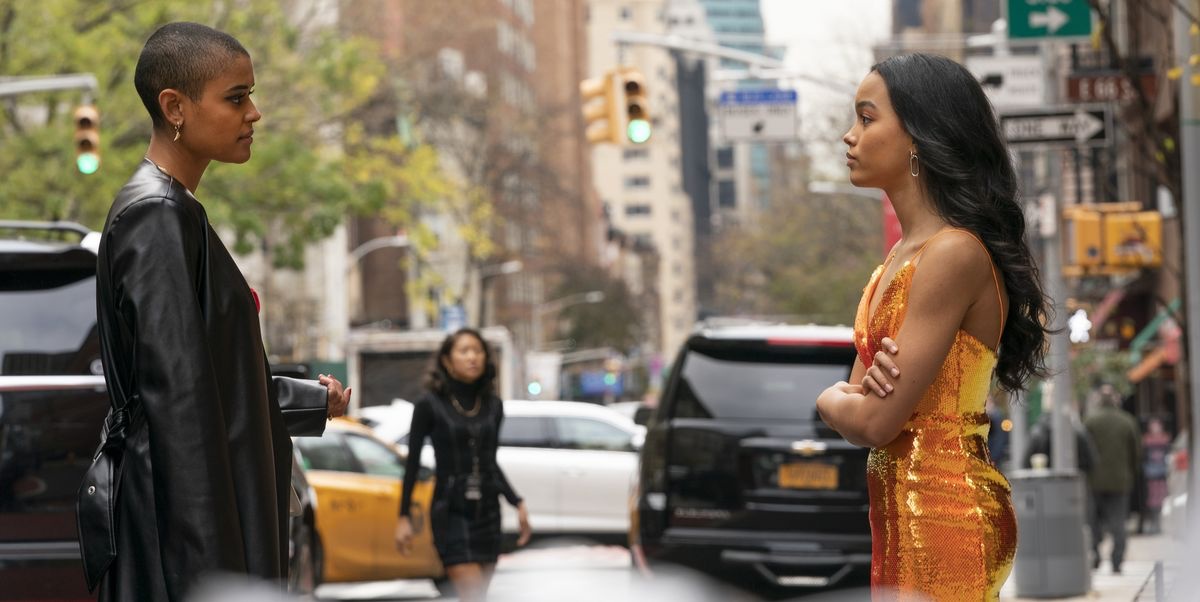Gossip Girl Inclusivity Still Misses the Issues Right on the Surface


Last week, the Gossip Girl reboot returned to deliver us some holiday drama, and yesterday, another three episodes dropped. As threesomes, divorce, teacher politics, and sexual assault accusations have all been thrown on the screen, one thing I am personally still finding “interesting” is that the show has yet to really tackle race.
One of the things the reboot was really eager to let us know was that this version of Gossip Girl was going to be inclusive and “woke.” For the most part, it has certainly been more sexually explicit and has more characters of color, along with LGBTQ characters. That is great. But despite that, it still centers on whiteness uncritically, especially in how it discusses Julien (Jordan Alexander) and Zoya (Whitney Peak).
From the beginning, one of the unsaid things on the show is that Julien was raised by her wealthy white father, and her Black mother left to be with Zoya’s father, who is a Black man. Their mother died after giving birth to Zoya, and so we have, with Julien, this visibly Black biracial woman raised by her white father. In the second to last episode of the latest drop, we see that Julien is close to her paternal grandparents, but who are the Black people in her life? The Black women in her life?
Within the friend group, the only other Black woman is Monet de Haan, who is also a lesbian, but she has been a side character since the beginning. Acting as nothing more than a henchwoman.
That is why the aspect of Julien reaching out and bringing her sister here was such a compelling dynamic. Yet for all that, Julien seems to not have any conversation about this part of their dynamic.
Julien’s background isn’t unique, there are at least three biracial Black women celebrities I can think of off the top of my head, who were raised primarily by the white (material) side of their family (Halle Berry, Doja Cat, and Alicia Keys). Mixed in with that on Julien’s side is the privilege of always having access to wealth through having a white father.
While Gossip Girl is trying very much to use the language of a post-racial society, it often forgets that it is still operating in a hyper-white space. When it decided that the two core Black female leads were going to be lighter skinned, mixed-race actresses, it was leaning into the privilege of colorism. With Monet sidelined, the only other recurring darker-skinned female character we’ve gotten has appeared recently as Zoya’s friend who “who pushes her to break the rules.”
And it’s not just the Black women. Akeno “Aki” Menzies is also an Asian biracial character, and while his storyline has revolved mostly around his sexuality, beyond that, he is always giving support to others. Luna being Mexican and a trans woman (like the actress playing her) is only something we know from Wikipedia. While I think it’s great to have it normalized, it also seems like they just didn’t know how to talk about it and so didn’t, as seen in this interview with the showrunner:
No, Luna is trans. I say that, but I don’t know how oblique there is of a reference to it. But yeah, Luna is a trans woman in the show. We decided as writers that this isn’t a show that’s about how she became her authentic self. That’s just not our story. Luna is Luna to these people, and that’s that.
There is a story later in the season that talks about disclosure. But Gossip Girl is not weaponizing anyone’s gender or sexuality in the show, or race or identity.
Telling the audience that the character is explicitly trans doesn’t mean that you are weaponizing it.
The show is fun, and I have enjoyed its efforts to do as Euphoria did and tell a mature teen story, but it still feels incapable of seeing what it is missing right on the surface.
(image: HBO)
Want more stories like this? Become a subscriber and support the site!
—The Mary Sue has a strict comment policy that forbids, but is not limited to, personal insults toward anyone, hate speech, and trolling.—
Have a tip we should know? [email protected]
